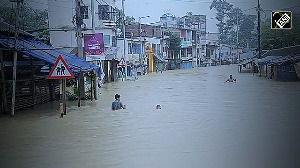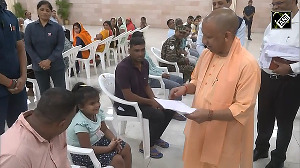Pakistan President Pervez Musharraf on Thursday finalised the order to revoke emergency on December 15, prior to which the Constitution will be amended to ensure that the decisions he has taken since November 3 are not questioned in courts.
Before the emergency is ended on Saturday, the Constitution will be amended to give protection to all actions taken by Musharraf since he clamped the tough measure on November 3, Attorney General Malik Qayyum said, adding that the changes will not affect the jurisdiction of the judiciary.
Several proposed amendments were dropped, including one related to changes in the Supreme Judicial Council, the body that governs the judges of the apex court, and another to ensure that the chief justice had a fixed tenure, Qayyum told Dawn News channel.
Though reports had suggested that Musharraf would also act to remove the ban on a third prime ministerial term, Qayyum said such a measure was not even discussed during the president's meetings with his aides and legal advisors.
After doffing uniform and taking oath as a civilian for a second presidential term on November 29, Musharraf had pledged to end the emergency in December.
Over the past few days, Musharraf has held hectic consultations with legal advisors, including Qayyum and top jurist Syed Sharifuddin Pirzada, to frame Constitutional amendments to make sure that his actions during emergency rule cannot be challenged in court.
Musharraf also met caretaker Prime Minister Mohammedmian Soomro on Thursday to discuss the proposed changes.
Qayyum said all fundamental rights will be restored with the revocation of the emergency. Several other steps will be taken at the same time, including lowering the minimum age for judges of the superior judiciary from 45 to 40.
Judges of the superior judiciary, who did not endorse the emergency and take oath under the Provisional Constitutional Order issued by Musharraf, will be entitled to pension, he said.
Musharraf had suspended the Constitution and key fundamental rights and placed strict curbs on the media after imposing emergency.
Over 5,700 people, including judges, lawyers, rights activists and politicians, had been arrested under emergency regulations.
The government has said that all but five of the detainees have been released.





